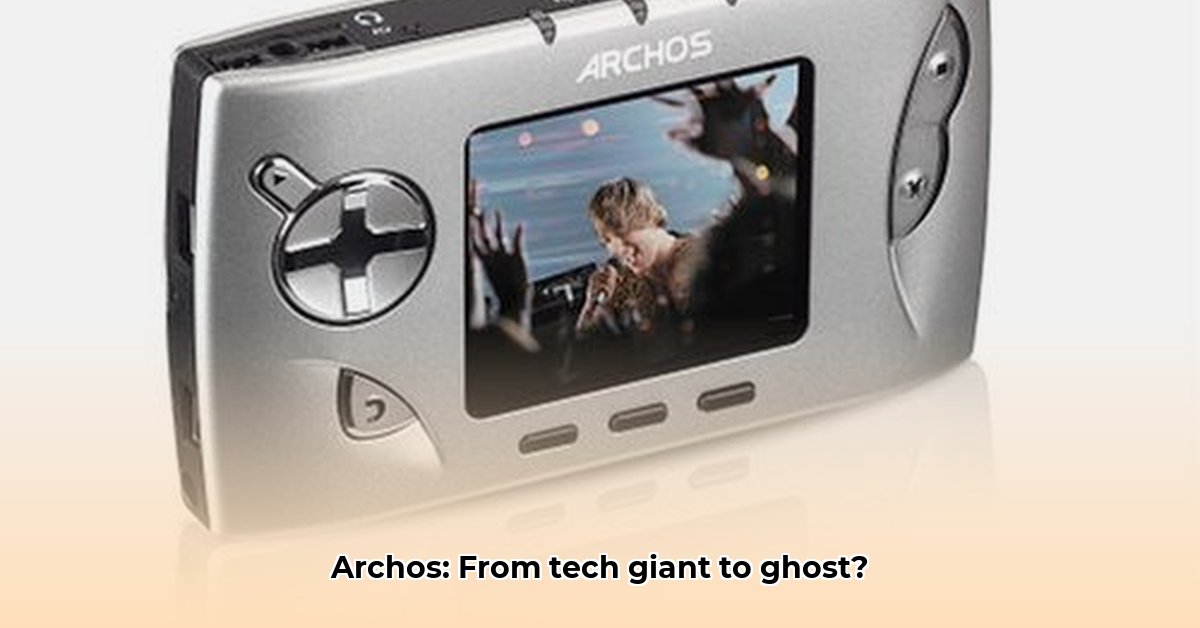
Archos Media Player: A Tech Pioneer's Journey
Before the ubiquitous smartphone and the reign of streaming services, a French company named Archos dared to challenge the giants of the digital music world. Their early portable media players (PMPs), particularly the Jukebox 6000, were revolutionary. Suddenly, carrying thousands of songs in your pocket wasn't science fiction—it was a reality. The Archos 404, boasting a massive (for its time) 30GB hard drive and a surprisingly large 3.5-inch screen, further solidified their position as innovators. But was this technology-first approach sustainable in the long run? Did their success foreshadow their downfall?
The launch of Apple's iPod in 2001 fundamentally altered the competitive landscape. Archos' devices offered superior specs—more storage, often better screens. Yet, Apple masterfully packaged its technology within a simple, elegant user experience. The seamless integration of iTunes and the iPod created an undeniable ecosystem, attracting even tech novices. This highlighted a critical oversight: While impressive technical specifications were a strong starting point, they were insufficient on their own. Consumers craved simplicity, and Apple delivered. Did Archos underestimate the power of a user-friendly experience and a strong brand identity? Could a focus on pure technology ever truly overcome the need for a cohesive, consumer-centric approach?
Facing slowing sales of its media players, Archos attempted diversification. They ventured into smartphones, smart home devices, and even electric scooters. These forays proved challenging, however, as they lacked the same impact as their original PMP line. Were these diversification attempts simply too broad, lacking the focused innovation that characterized their initial success? Or did Archos lack the resources and strategic vision to compete effectively against established giants in these new markets?
Archos's Technology-First Strategy: A Double-Edged Sword
Key Takeaways:
- Archos' initial success stemmed from its pioneering technology, notably the Jukebox 6000.
- This technology-centric approach, while initially groundbreaking, proved insufficient for long-term market leadership.
- The company’s focus on raw technology overshadowed crucial elements like branding and marketing.
- Intense competition, including Apple's iPod and later the influx of lower-cost Chinese manufacturers, exposed Archos' weaknesses.
- Diversification attempts into various markets ultimately proved unsustainable, further highlighting the need for a focused strategy.
Archos's journey serves as a compelling case study in the importance of balancing innovation with a robust business strategy. Their initial triumph with the Jukebox 6000 demonstrates the potential of disruptive technology. However, their subsequent decline highlights the crucial role of user experience, marketing, and a clear market strategy.
The Early Triumph of Technology and the Limitations of Innovation Alone
The Jukebox 6000 wasn't merely a technological marvel; it captured the imagination. Its capabilities exceeded those of competitors, generating significant buzz with minimal marketing investment. Yet, this early success, driven largely by technological prowess, masked a larger vulnerability. Their relentless focus on pushing technological boundaries overshadowed the need for a strong brand identity and a cohesive user experience.
The iPod's Impact and the Rise of Fierce Competition
Apple's iPod, while not always technologically superior, offered an unparalleled user experience and a seamless ecosystem fueled by iTunes. This perfectly integrated approach captured the market, showcasing the limitations of a purely technology-driven approach. Additionally, the entry of low-cost Chinese manufacturers further challenged Archos, creating a price war they couldn't effectively combat.
Diversification: A Necessary but Underwhelming Response
Archos's diversification into smartphones and other product categories was a logical attempt to adapt to market changes. Nevertheless, these efforts failed to replicate their initial success. These ventures exposed a lack of focus and the challenges of competing against established brands with deep pockets and strong brand recognition.
Lessons Learned: Striking the Right Balance
Archos's story underscores a crucial lesson: technological innovation is essential, but it is merely one piece of a far larger puzzle. To thrive in the fiercely competitive consumer electronics market, a company needs a holistic strategy encompassing marketing, branding, user experience, and a clear understanding of market dynamics. Archos's legacy serves as a cautionary tale, highlighting the importance of this strategic balance to achieve lasting success.
⭐⭐⭐⭐☆ (4.8)
Download via Link 1
Download via Link 2
Last updated: Sunday, May 04, 2025